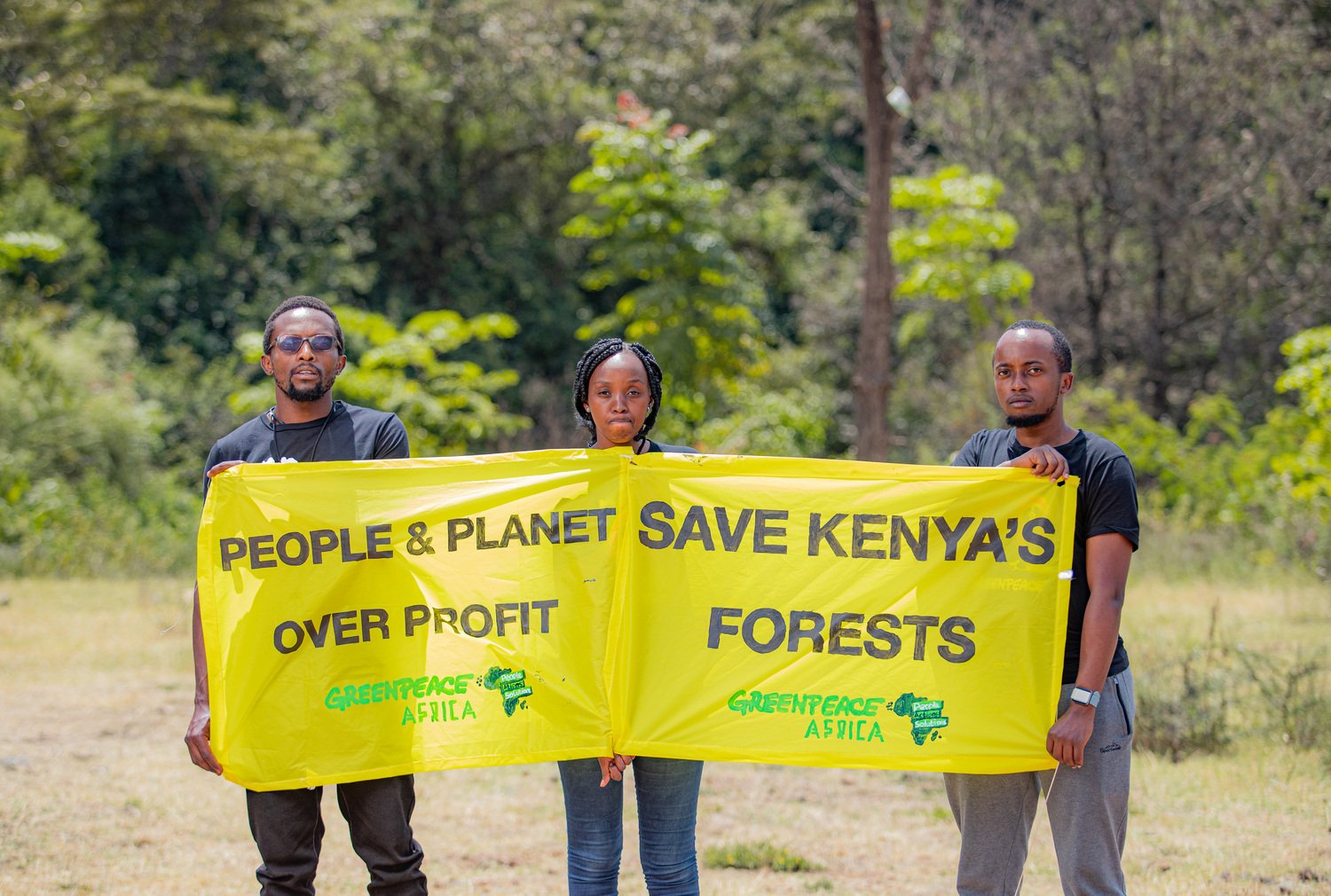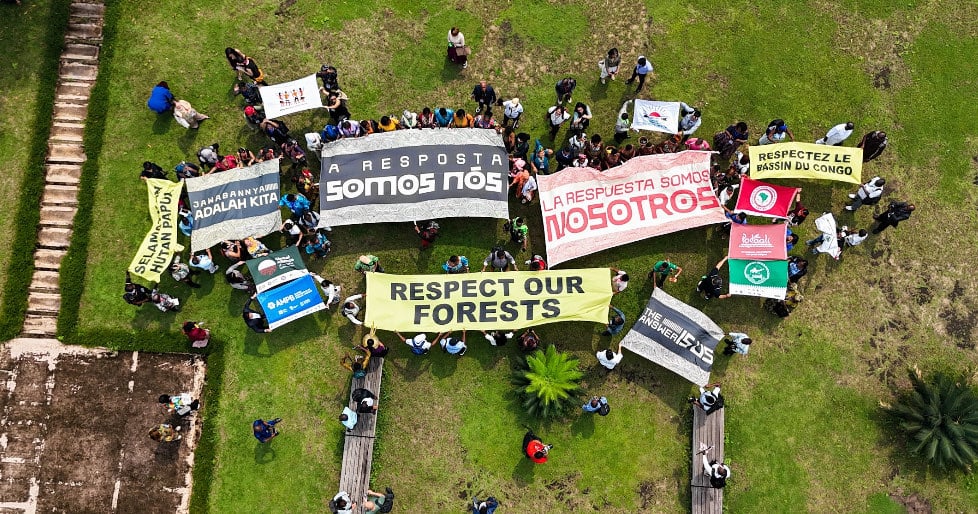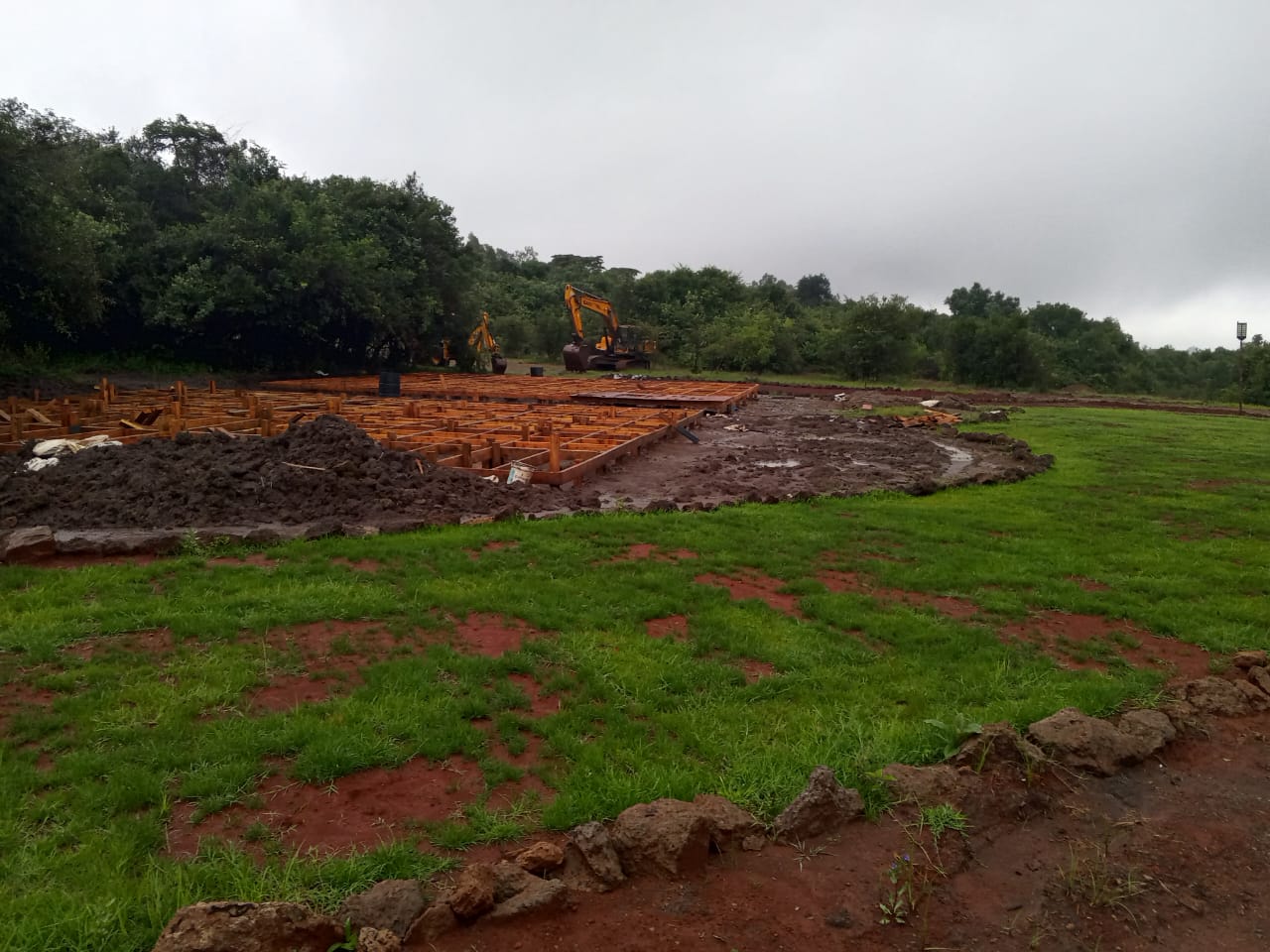Kinshasa, 30 August 2019. Greenpeace Africa documented large scale fraudulent logging of mukula timber in the Democratic Republic of the Congo in August 2016. Today, the protected status of the mukula tree by CITES [1] sends hope for the Miombo woodlands.
“After the mukula tree, there are numerous endangered animals and plants waiting in line for protected status,” said Dr. Raoul Monsembula, Greenpeace Africa’s Regional Coordinator for Central Africa. “President Tshisekedi’s new government has the opportunity and responsibility to enforce national protection of our natural treasures,” he added.
On the eve of the CITES decision the Environmental Investigation Agency (EIA) released a devastating report revealing that since Tshisekedi became president, illegal Congolese mukula is again transiting through Zambia: “The dormant trafficking networks suddenly awakened; less than a week after the first container of mukula from DRC crossed the border to Zambia in April 2019, EIA sources observed the nightly loading of a clandestine convoy guarded by individuals with Congolese army uniforms”.
Mukula is a rare, slow-growing timber species endemic to the Miombo Woodlands, a unique ecosystem of scrub and savanna south of the Congo Basin. It is known to play an important role for a variety of species including bees, primates, elephants, and rodents; it is also vital to soil preservation and other ecosystem services.
While the Annex II listing of mukula by CITES is positive, maximum vigilance is necessary, given DRC’s track record. In 2014 the CITES Secretariat notified Parties of the existence of a “large number of fake or falsified [export] permits” for Annex II-listed Afrormosia “apparently issued by the Democratic Republic of the Congo.”
Massive corruption and high demand in the Chinese furniture industry are driving illegal mukula logging in southern DRC and Zambia.
“For over a month in 2016, Greenpeace Africa documented mukula logging operations. In 2017-2018, an exhibition entitled ‘Blood Wood’ was held at Shanghai’s Beaugeste Gallery. All countries must play a role in supporting conservation efforts for the future of our planet,” concluded Monsembula.
ENDS
Contact :
Afy Malungu, Greenpeace Africa Communications Officer in the DRC,
Mobile: +243 991 521 250, Email: [email protected]
Tal Harris, International Communications Coordinator for Greenpeace Africa,
Mobile: +221 776 73 04 96, Email: [email protected]
Dr. Raoul Monsembula, Regional Coordinator for Central Africa, Greenpeace Africa, Mobile: +243999010900, Email: [email protected]
[1] CITES (the Convention on International Trade in Endangered Species of Wild Fauna and Flora) is an international agreement between governments. Its aim is to ensure that international trade in specimens of wild animals and plants does not threaten their survival. On 28 August 2019, the mukula tree was added to CITES “appendix II,” a
decision meant to increase regulation and control. www.cites.org/eng



